“It's crazy how you can get yourself in a mess sometimes and not even be able to think about it with any sense, and yet, not be able to think about anything else. You get so you're no good for anything or anybody. Maybe it begins by taking life too serious. Anyway, I think that's the way it began for me, just before my fight with Rodriguez three days ago…”Killer's Kiss (Stanley Kubrick, 1955)
Oct
25
Fri

An already worn-out poster for “another great bout” between Davey Gordon and Kid Rodriguez. DP: Stanley Kubrick.
– Davy Gordon
romance
“I never thought I could be friends with a German again. But here I am… Werner is somehow like Murnau brought back to life.” Nosferatu: Phantom der Nacht [Nosferatu the Vampyre] (Werner Herzog, 1979)
Oct
22
eternal returns
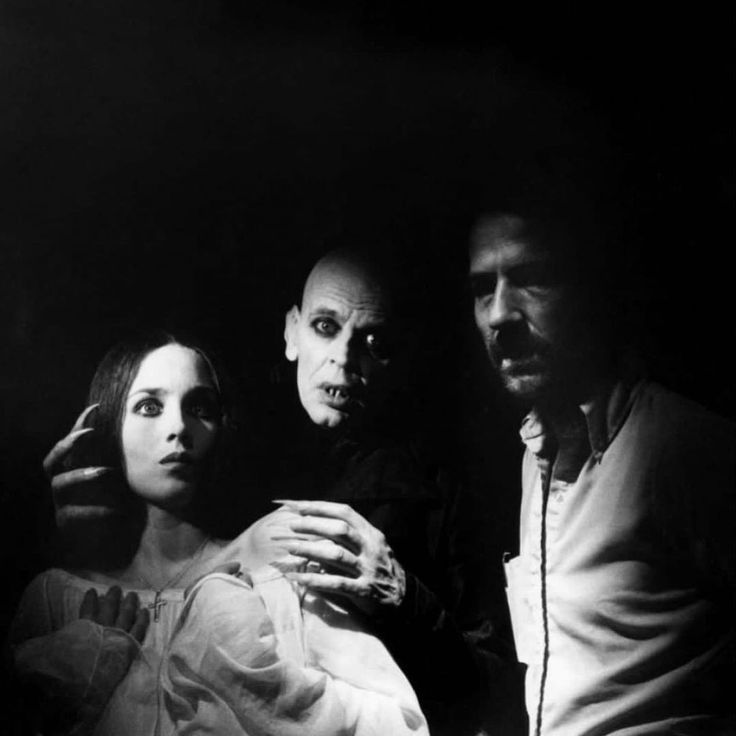
Adjani, Kinski, and Herzog on set. DP: Jörg Schmidt-Reitwein.
[A favourite] horror remake*
– Lotte Eisner visiting the set of Herzog's Nosferatu (via)
Coming back to Murnau's expressionist masterpiece was Herzog's bridge between the films made by the grandfathers of German cinema and his era. Herzog, born in 1942 Munich, noted this void created by that philistine regime and felt that, by picking up the thread cut a quarter of a century earlier, German culture could see a restoration to its (non-nationalistic) greatness. Thus a menagerie of rats and actors was released in a reluctant, bourgeois Dutch town.
But that's a story for another generation to draw upon.
* the Bales 2025 Film Challenge for October is horror-themed as opposed to date-based, and is all about favourites. Expect non-horror and films I believe to be relevant instead.
“Everything in this masterpiece contributes to its unity: the absolute mastery of editing and rhythm; slow motion, superimpositions, tracking shots, the mobile camera all play their roles and never gratuitously. The photographic quality, worthy of the most learned German operators, the lighting of the sets which envelops them in mystery, the sets themselves, neither realistic nor stylized, but as if sketched; the acting neither realistic nor expressionist, and yet adapted to the fantastic, to the violence; to the pauses; to the blur.” La chute de la maison Usher [The Fall of the House of Usher] (Jean Epstein, 1928)
Oct
21
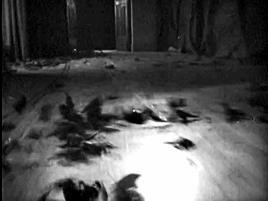
A rapid tracking shot along a dark corridor. Dead leaves follow the camera (via). DPs: Georges Lucas & Jean Lucas.
A favourite horror film adapted from a book or short story*
– Henri Langlois, via
A groundbreaking expressionist interpretation of Poe's inner horrors. Many of the tropes so common in later horror films, are fully fledged and present here.
* the Bales 2025 Film Challenge for October is horror-themed as opposed to date-based, and is all about favourites. Expect non-horror and films I believe to be relevant instead.
– The Paris Court of Appeals, meeting on October 15, 1959, pursuant to the charges against Dominique Marceau. – With a girl like that, truth may be the best defense for once.La vérité [The Truth] (Henri-Georges Clouzot, 1960)
Oct
15
1959
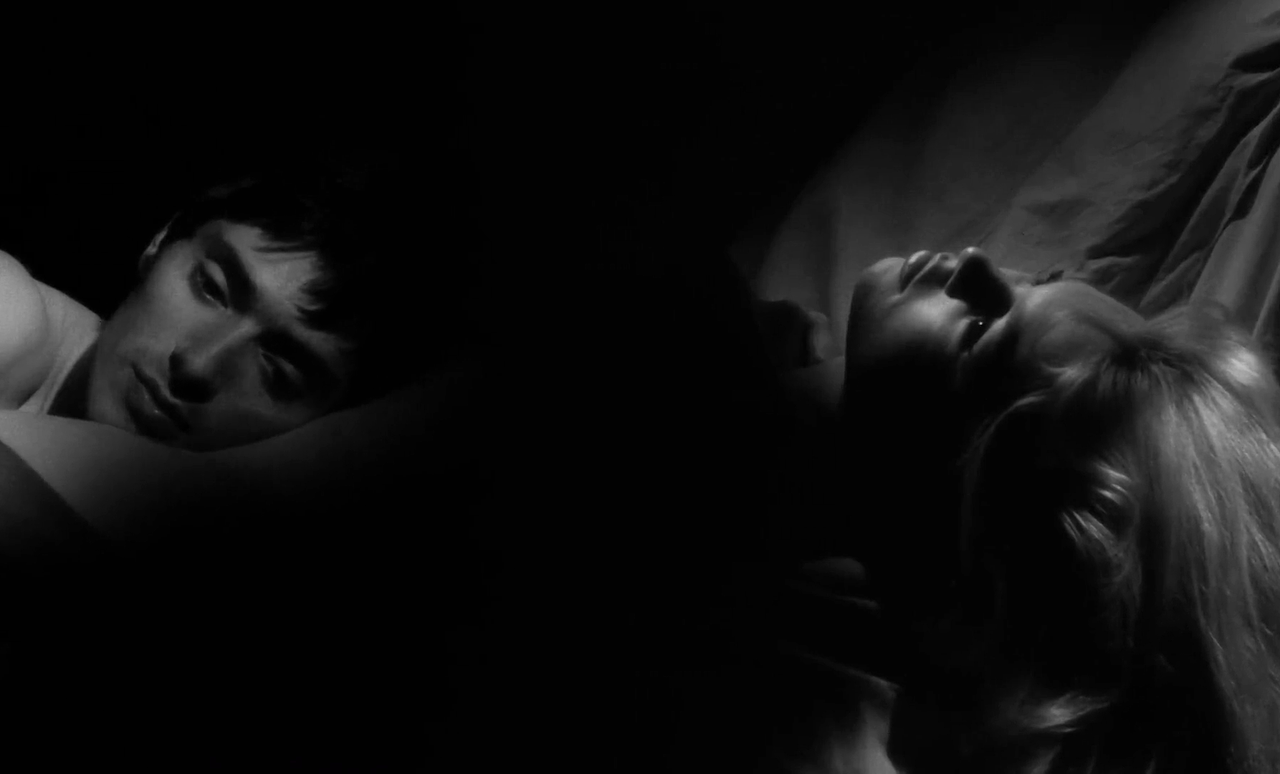
Gilbert (Sami Frey) and Dominique (Brigitte Bardot). DP: Armand Thirard.
The day of the court case. Numerous other dates are mentioned, all in flashbacks.
“One can meet only god at such hour.”駅 [Eki / Station] (Yasuo Furuhata, 1981)
Oct
12

Eiji Mikami (Ken Takakura) and Kiriko (Chieko Baishō) watching TV in her quiet bar. She sings along with her favourite song. DP: Daisaku Kimura.
Set 278 days before the start of the Tokyo Olympics.
“Blood of Christ. Demon. A curse upon this man. A curse that he will never forget me. Blood of my body. Until the grave. A curse that he will never forget me.” Il demonio [The Demon] (Brunello Rondi, 1963)
Oct
6
exorcism
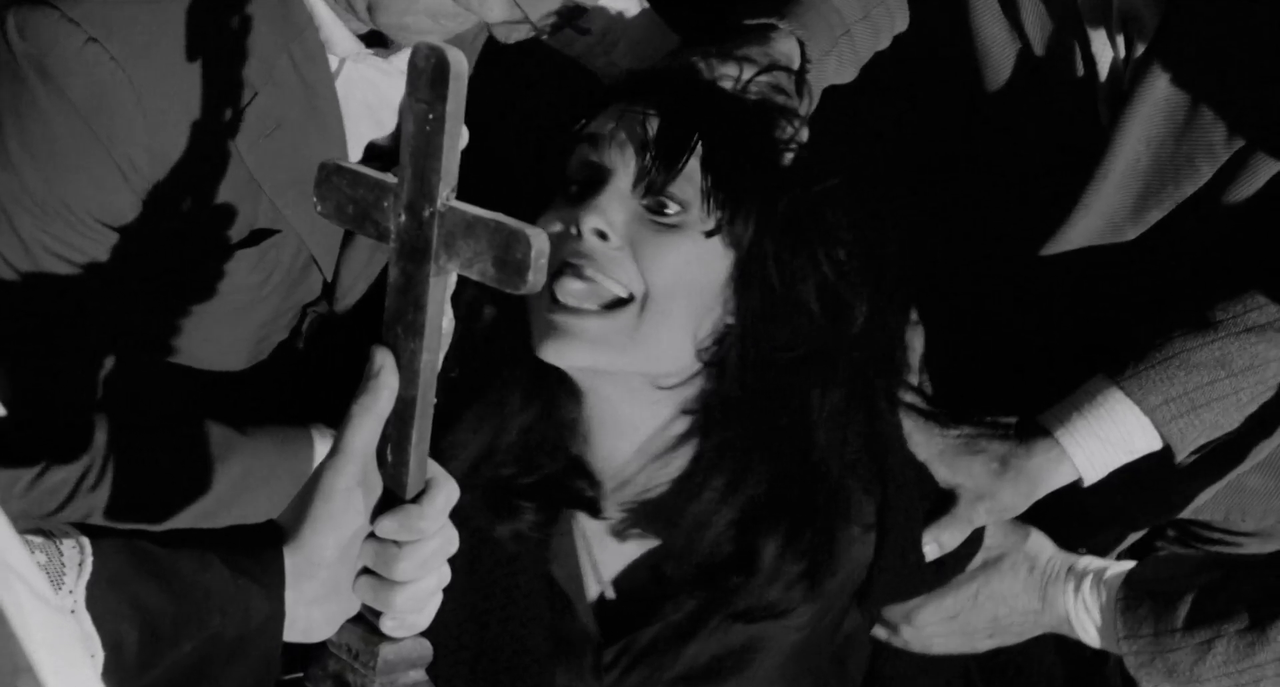
While several men hold her down, Purif (Daliah Lavi) sticks out her tongue to the crucifix held up to her. DP: Carlo Bellero.
[A favourite] exorcism film*
– Purificazione
When a rejected young woman puts a curse on her heart's desire, the locals see nothing less than witchcraft. It is decided that Purif must be possessed, and exorcised.
* the Bales 2025 Film Challenge for October is horror-themed as opposed to date-based, and is all about favourites. Expect non-horror and films I believe to be relevant instead.
Die Republik der Backfische [The Republic of Flappers] (Constantin J. David, 1928)
Sep
20
1928
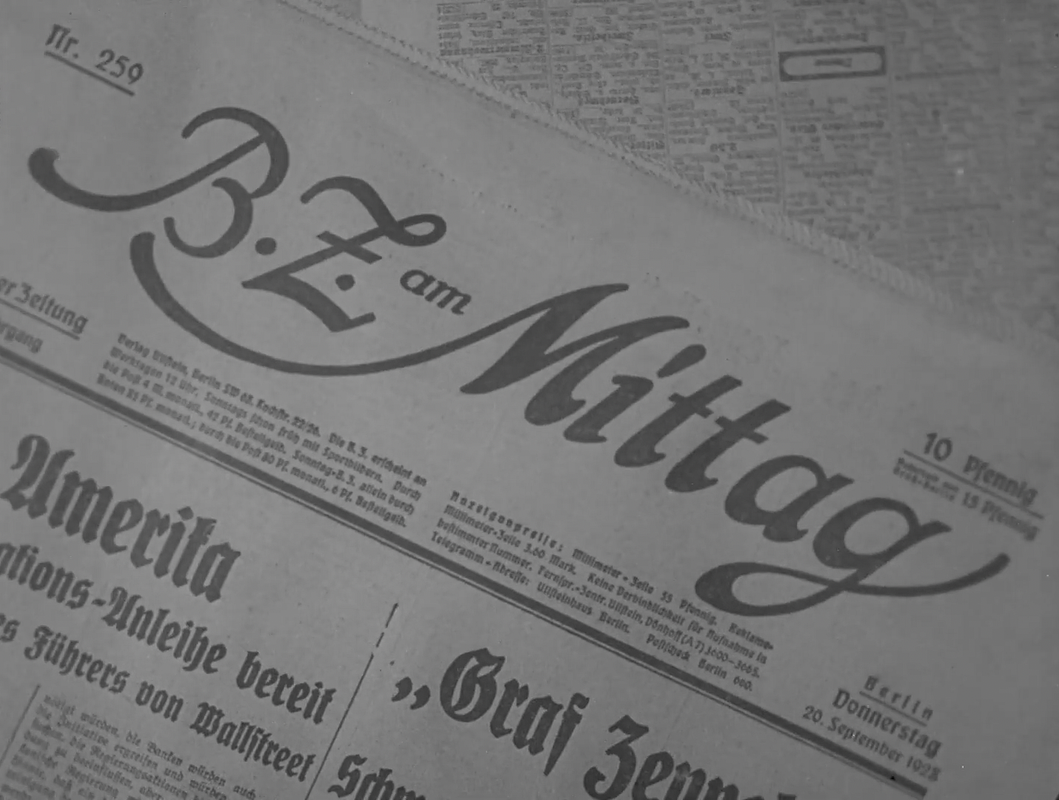
The Berliner Zeitung (a rag of a paper that's still around to this day) of September 20, 1928. It blares something about America and Graf Zeppelin, the then-new airship. DP: Mutz Greenbaum.
Depending on the language version you watch, you'll see a 1928 newspaper headline dated September 20 (a Thursday), January 10 (a Tuesday), or January 9 (a Monday).
Слънцето и сянката [Slantzeto i syankata / Sun and Shadow] (Rangel Vulchanov, 1962)
Sep
18
National First Love Day
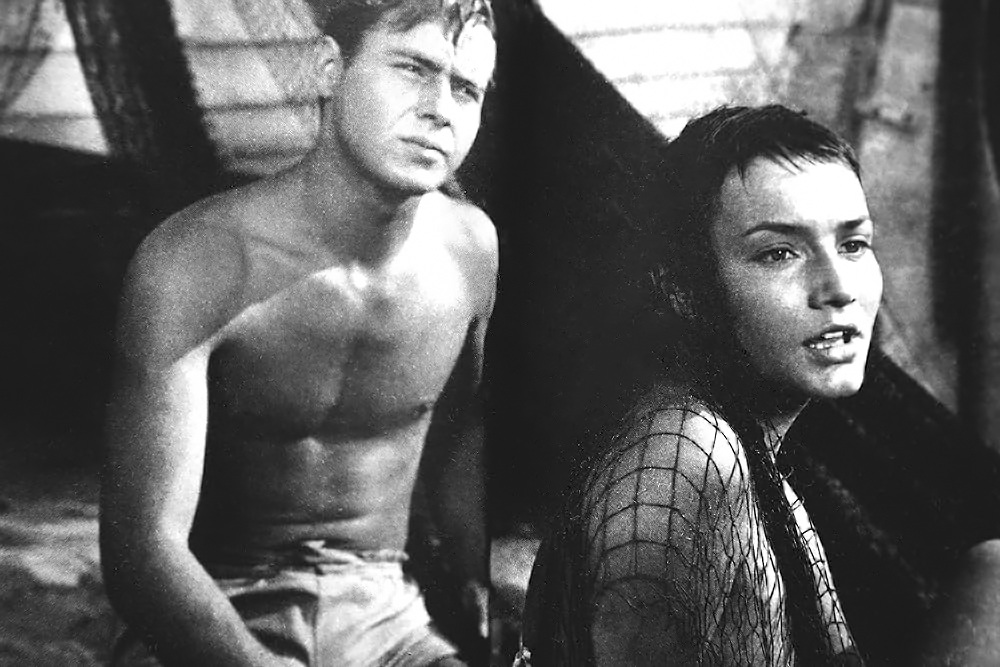
The two young lovers (Georgi Naumov and Anna Prucnal). DP: Dimo Kolarov.
First love for National First Love Day (USA).
A boy and a girl fall in love at a resort at the Black Sea. He's the son of an architect, an optimist who sees creation where possible. She's the daughter of a nuclear scientist, the future an inevitable apocalypse.
“Mars Daughter, You are fine. I am loving you and I should like very much to marry you.”Un matrimonio interplanetario [A Marriage in the Moon] (Enrico Novelli, 1910)
Sep
12
Луна 2 – 1959
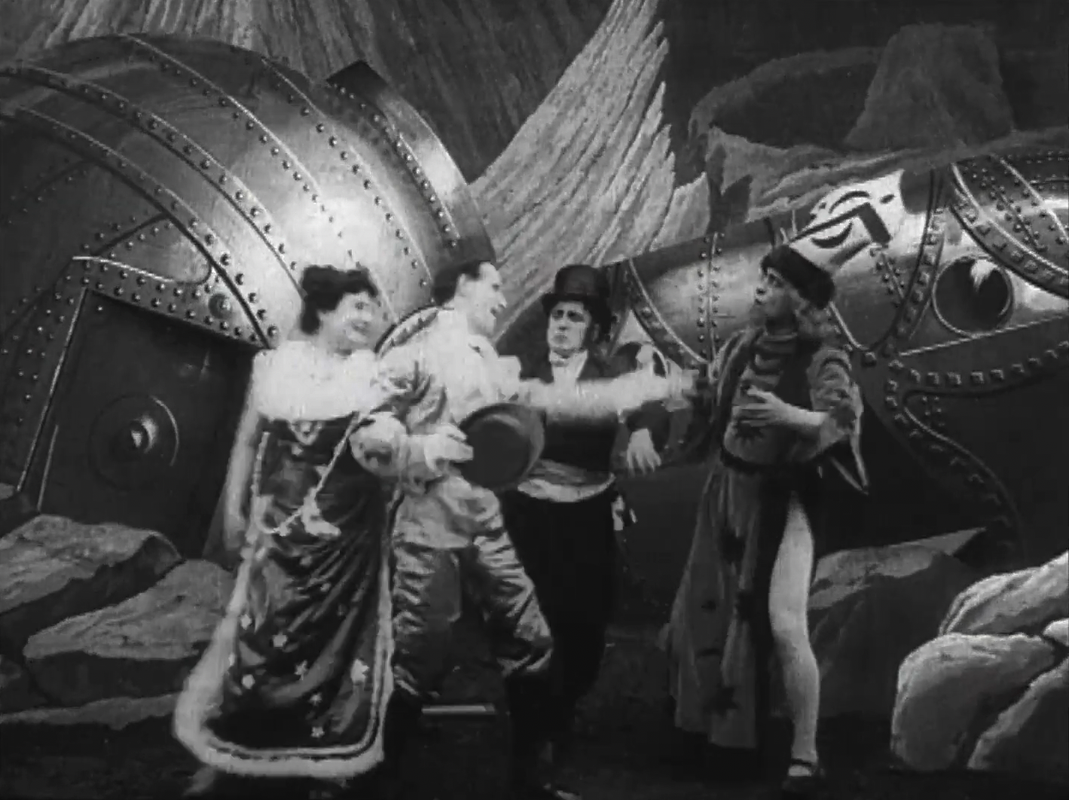
Aldovin (director and author of La Colonia Lunare (1908) meets his lovely Martian fiancée halfway, on the Moon.
To commemorate the launch (not landing) of the Луна 2 aka the Second Soviet Cosmic Rocket on September 12, 1959, we present The Moon.
According to Wikipedia, Luna 2 was the first spacecraft to touch the surface of the Moon, and the first human-made object to make contact with another celestial body. Well, Enrico Novelli went there first…
– Aldovin, Terrestrial Astronomer (Aldovin's radiotelegraph to Mars), via
…and what an adventure he had! An Earth gentleman points his telescope at the red planet, only to spot a beautiful Martian princess. He promptly falls in love and lo and behold! it's mutual! That asks for an instantaneous wedding halfway, on the Moon, and nothing can stop them!
Maléfices [Sorcery / Where the Truth Lies] (Henri Decoin, 1962)
Sep
10
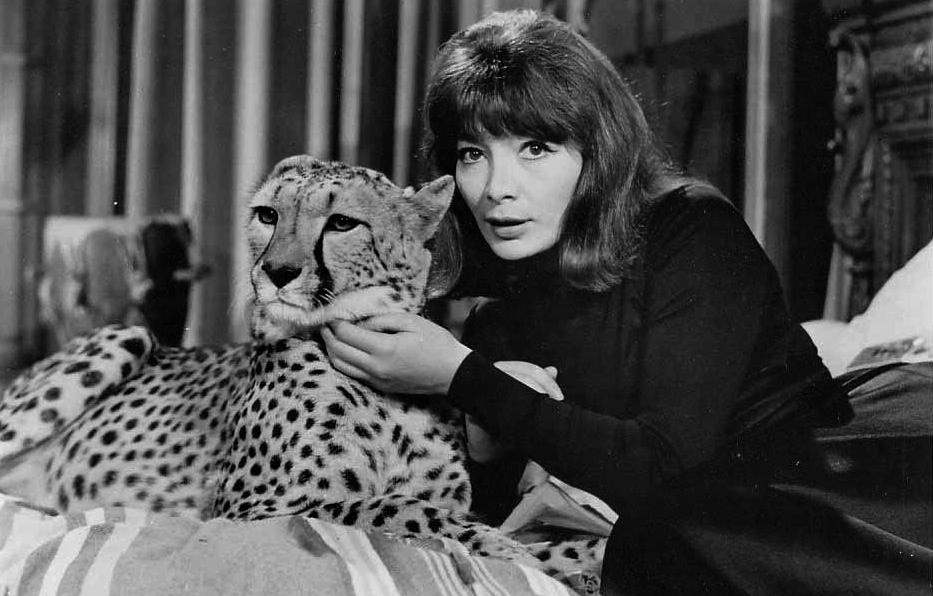
Myriam Heller (Juliette Gréco) sharing a bed with Nyète, her cheetah. DP: Marcel Grignon.